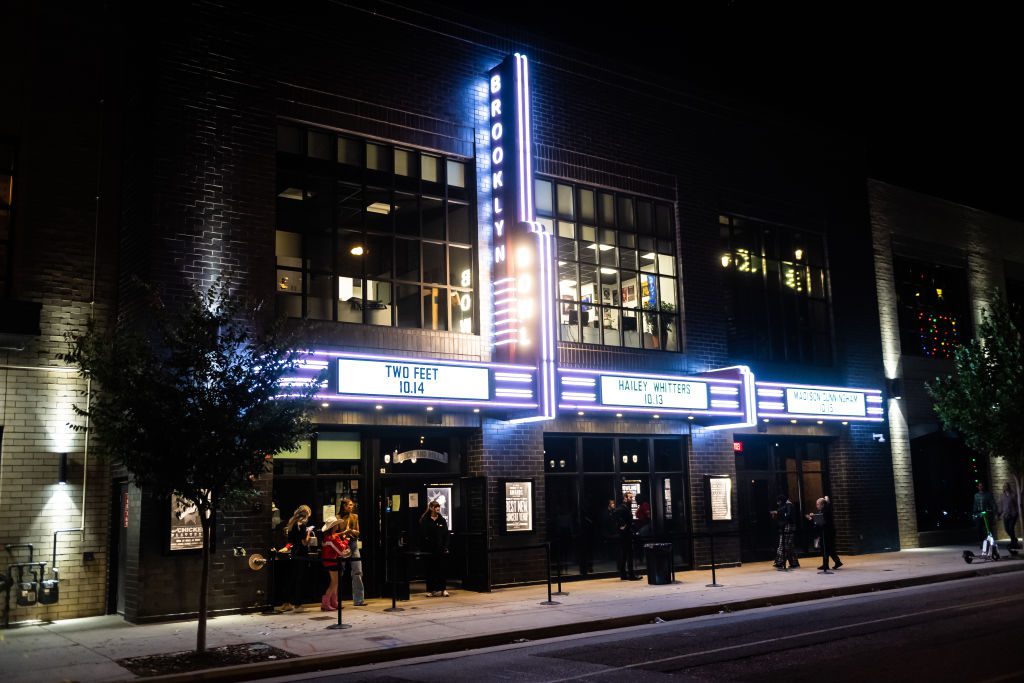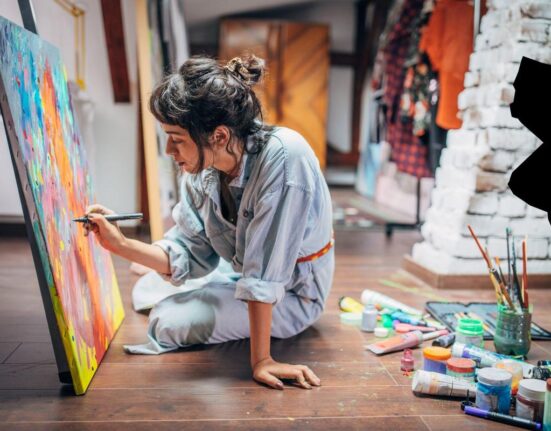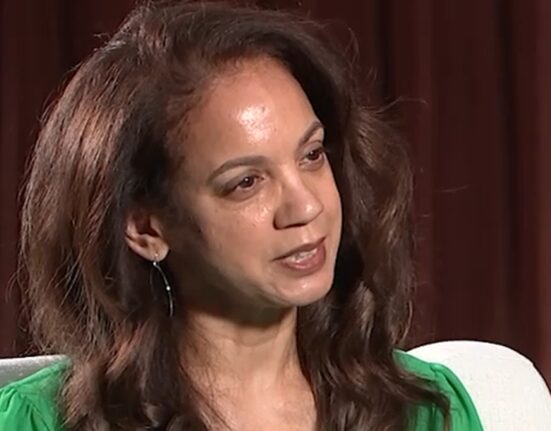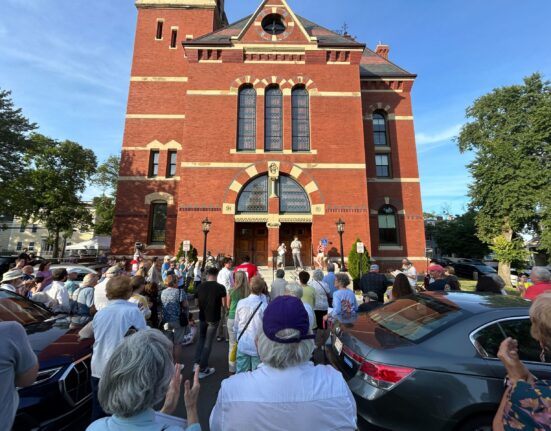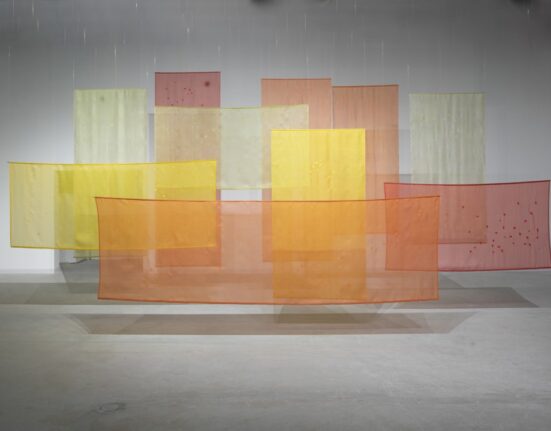Venue merch cuts have been a hot topic lately.
In the era of streaming, with physical album sales near all-time lows and services like Spotify and Apple Music paying artists only a fraction of a cent per stream of their song, artists are relying on touring more than ever to make most of their money.
And it’s even harder for smaller, independent artists: The ones that aren’t backed by a major record label, and who aren’t selling out arenas every night, meaning they have to be on the road even more just to pay their band and crew.
One way that artists make up a lot of their revenue is in merchandise sales. Whereas streaming an artist’s song (or even an entire album) may only pay a few cents at best, buying a t-shirt is one way for fans to put money directly into that artist’s pocket.
Well, unless the venue also requires that the artist give them part of their merch sales too…
That’s right. Whether you realize it or not, many venues require artists to give them a percentage of their merchandise sales every night.
That means that an artist who designed their own merch, brought it to the show, counted it in before the show and counted it out after, and had their own team to sell it, is still required to give the venue a portion of the revenue that they made from the sale of their merchandise.
The practice of venues taking a percentage of merchandise sold at a show isn’t new. Venues defend it as essentially “rent” for the space they’re providing the artist to sell merch. And back when artists were able to sell 100,000 physical copies of an album and merchandise didn’t make up as large of a percentage of their revenue, giving 20% to the venue wasn’t as big of a hit to the artist.
And sure, this is a gross oversimplification of everything that goes into it. But times have changed, and many artists have started calling for venues to end the practice of skimming off the top of their merch sales.
American Aquarium frontman BJ Barham has been one of the most outspoken critics of the practice, and even began putting out signs at each show letting fans know which venues are and aren’t taking merch cuts.
And Barham says that, as the practice began to be brought to the light, with fans overwhelmingly supporting the artists, some venues began to back down from essentially taxing the artists’ merch sales.
But one venue in Nashville is standing their ground on the predatory practice.
The Brooklyn Bowl, a 1,200 person capacity concert hall and bowling alley, which also has an onsite restaurant, takes a 15% cut of soft merchandise sales from artists.
And during a recent appearance on The New Music Business podcast, Brooklyn Bowl general manager Sara Barnett defended the practice of merch cuts for the venue:
“It’s just another way to make revenue. Unfortunately as for venues, we don’t make a lot of the ticket revenue. A lot of that goes to the artist.
We are fortunate here to have a restaurant, to where we can sell food, but also we make bar sales and that is fully ours. But we do not make a whole lot of profit when it comes to ticket sales.
So merch is another way where we can get some revenue in.”
Of course it’s misleading to say that venues “don’t make a lot of the ticket revenue,” because the venue also makes money on fees that go straight to the venue and aren’t included in an artists’ revenue.
When an artist signs a deal that includes a payout of, for example, 80% of revenue from ticket sales, that means they’re getting 80% of the face value of the ticket. So if a venue lists a ticket for $25, the artist is getting 80% of that $25.
But of course everybody who’s bought tickets online knows that when a ticket is listed for $25, the fan who buys the ticket isn’t just paying $25. They’re paying fees on top of the price of the ticket. And those go directly to the venue. So while a fan may end up paying $40 for that ticket after all of the fees, the artist is only getting 80% of the $25 face value. The venue is getting 20% of the original $25, PLUS 100% of the fees.
Of course there are often other parties involved in the fees, like ticket processors and promoters who are hired by the venue, but the bottom line is: The artist doesn’t see any of those fees at the end of the day.
See the problem with Barnett’s excuse?
And the podcast host Ari Herstand also questioned how it was fair for venues to take a cut of merch sales but not provide artists with a cut of the food and beverage sales: After all, the fans aren’t there buying overpriced food and drinks because of the venue. They’re there because of the artist.
But the GM of the Brooklyn Bowl’s answer was basically, “Well, it’s up to the artist and their team to negotiate a good deal for themselves.”
“Well we give them – the deal is made with the artist, I mean the deal is made with the agent, and the booker, ahead of time, and hopefully they can make a fair deal for them so they’re getting a fair share of the ticket revenue.”
That doesn’t really explain why artists shouldn’t get a cut of food and beverage sales when venues feel entitled to a share of merch sales, but…ok.
Brooklyn Bowl has a partnership with Live Nation, which is obviously one of the largest operators of music venues in the country.
And while Live Nation recently announced their “On The Road Again” program, which does away with merch cuts and provides artists with a $1,500 stipend to help cover their travel expenses, Brooklyn Bowl isn’t participating in the program because their “joint venture” relationship with Live Nation means they’re technically still an independent venue.
But Barnett says the venue has decided they’re not going to be doing away with merch cuts:
“It was decided we would just keep doing it the way we are doing it.
And we will waive it if it’s a smaller act and there’s very little merch, we’re not going to take everything…no, I mean, we’ll work with them if we have to.”
How generous of them…
The Brooklyn Bowl opened in 2021, and since then it’s played host to many major touring artists from all genres of music, including names like Lainey Wilson, Muscadine Bloodline, Noah Kahan, and this past weekend, 49 Winchester.
With so many revenue streams available to the venue that are cut off from artists, like food and beverage and ticketing fees, I still find it insane that these places insist on also dipping into merchandise sales too in order to squeeze even more money out of artists that are struggling to make money on the road.
But apparently the venue doesn’t have any plans to change their practice any time soon.
@aris.take New episode of the #NewMusicBusiness podcast with Sara Barnett, GM of the Brooklyn Bowl Nashville. Ari goes toe-to-toe on merch fees. Listen to the full episode wherever you listen to podcasts. #musicbiz #musicbusinesstips #musicindustrytips #musicmarketing #musicmarketingtips #musicadvice #merch #merchfees ♬ original sound – Ari Herstand, Ari’s Take

